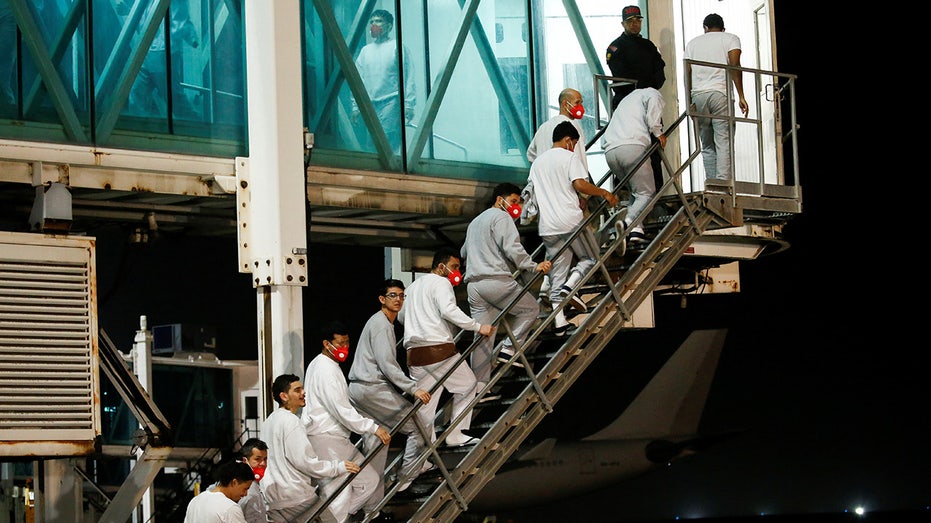US Deportation Flights to Venezuela Resume After Political Standoff

Sarah Johnson
March 24, 2025
Brief
Deportation flights from the U.S. to Venezuela have resumed after a diplomatic standoff, signaling a renewed agreement between Washington and Caracas amid ongoing migration disputes.
Deportation flights to Venezuela have officially resumed, following a tense standoff between the Trump administration and the Venezuelan government. The first flight in weeks landed on Sunday, carrying 199 individuals, including members of the notorious Tren de Aragua gang, as confirmed by the Department of Homeland Security (DHS).
This development signals that a deal has been struck between Washington and Caracas. For weeks, Venezuelan President Nicolás Maduro had refused to receive deportation flights after the U.S. revoked a Biden-era permit allowing Chevron to export Venezuelan oil—a major blow to the struggling Venezuelan economy. Only four such flights had been received since Trump came into office.
In a statement, Jorge Rodríguez, president of Venezuela's Assembly, confirmed the agreement: "Within the framework of the Return to the Homeland Plan, and to safeguard the human rights of our compatriots, we have agreed with the U.S. government to resume the repatriation of Venezuelan migrants." The first flight under this new arrangement reportedly departed from El Paso and involved a handoff of deportees at Soto Cano Air Base in Honduras.
Secretary of State Marco Rubio had issued a stark warning to Venezuela during the standoff, threatening "severe, and escalating sanctions" if deportation flights did not resume. Rubio made it clear via social media: "Venezuela is obligated to accept its repatriated citizens from the U.S. This is not an issue for debate or negotiation." Talk about leaving no room for ambiguity.
In recent weeks, roughly 350 migrants were deported to Venezuela, including 180 individuals who had been detained at the U.S. naval base in Guantanamo Bay. The Trump administration had also faced criticism for flying over 200 Venezuelan migrants to a high-security prison in El Salvador, despite a federal judge’s temporary order to halt such deportations.
Maduro, unsurprisingly, labeled the deportations as acts of "kidnapping," while also doubling down on his opposition to the flights. Meanwhile, Rubio thanked El Salvador's President Nayib Bukele for stepping in to assist with migrant transfers when Venezuela initially refused to cooperate. According to Rubio, Bukele offered to host the deportees "for a fraction" of what it would cost the U.S. to detain them. Now that's an international friendship built on fiscal pragmatism.
The resumption of these flights marks a significant shift in U.S.-Venezuela relations, though the long-term implications remain uncertain. For now, it appears both sides have begrudgingly found common ground—at least until the next geopolitical spat.
Topics
Editor's Comments
It’s fascinating how geopolitics can turn into a game of high-stakes brinkmanship. The U.S. played hardball with Maduro, and while it worked this time, the question remains: at what cost? Also, how wild is it that El Salvador stepped in to mediate, like a referee in a boxing match? This entire saga is equal parts diplomacy and drama.
Like this article? Share it with your friends!
If you find this article interesting, feel free to share it with your friends!
Thank you for your support! Sharing is the greatest encouragement for us.



